Why Does My Car Smell Like Gas? Tips Full Guide 2022

Why Does My Car Smell Like Gas? If your car smells like gas, it could be due to a fuel leak. Check your fuel lines and tank for leaks. If you find a leak, get it fixed as soon as possible. The smell could be due to a clogged fuel filter if you don’t have any leaks. Get the filter replaced if this is the case.
Why Does My Car Smell Like Gas?
1. Faulty Spark Plugs
Your spark plugs might have loosened over time if they were never tightened to the proper tension. Maybe your vehicle smells like gas because the sealing ring around the spark plugs isn’t correctly positioned.
In this situation, the fumes will exit your combustion chamber and enter the air intake for your car’s HVAC system. To put it another way, the engine will shoot gas fumes directly into your air vents.
Washers on the threaded portion of your spark plugs will seal everything. The gas odor may emanate if these washers are cracked, missing, or damaged.
Solution and Troubleshooting
Examine the spark plugs to ensure they are in good condition. If they do, remove each one carefully and remember where they go. If you mix them up while re-installing them, your vehicle will not start. Removing one at a time could be more straightforward and replacing it afterward.
If everything seems to be in order, let’s look at the torque. If you don’t have a torque wrench, it’s not an issue. Loosen the spark plugs until they can be hand-tightened.
Screw it in as tightly as you possibly can by hand. Please take out your wrench and crank it a quarter turn. You should now be at the proper torque.
You may now repeat this procedure for all of your spark plugs. This ensures that all of your plugs are placed at the correct torque.
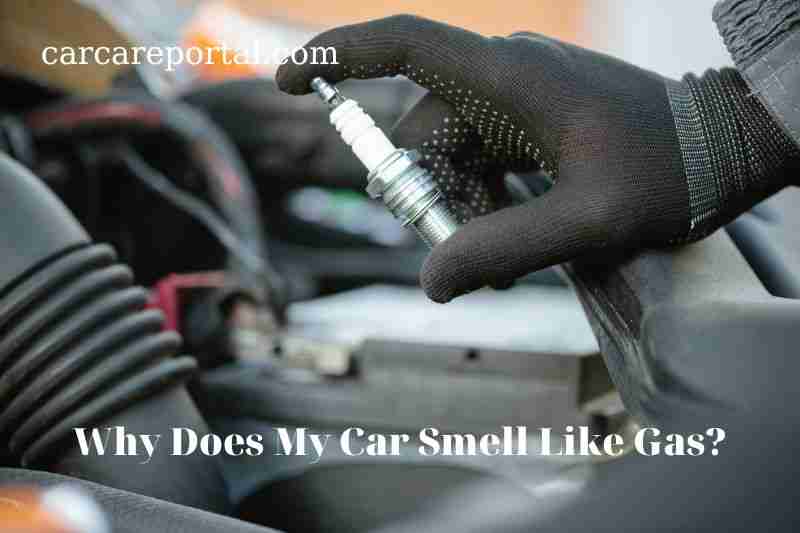
2. Defective O-Ring or Gasket Around the Oil Cap
This is one of the most typical reasons for a gas smell in an automobile. Troubleshooting takes less than a minute; you don’t need to jack up your automobile.
As the name suggests, the oil cap is the top of your oil reservoir. When you replace your oil, you remove this section. If it isn’t correctly seated, oil and gas smells will leak out and into the environment, causing your vehicle to smell like gasoline.
Solution and Troubleshooting
Open the hood and look for the oil cap. It is usually black and has the word “OIL”, or an image of an old-fashioned oil can work on it.
Take a look around the cap. Is there a lot of debris and grease behind the cap? This is a clear indication that your cap is not sealed correctly.
Remove the cap and inspect the O-ring on the bottom. If it’s flattened, cracked, or completely missing, it’s time to replace it. Fortunately, your local auto parts shop will have this item in stock for a few bucks.
Finally, consider the cap itself. If the cap is damaged or broken, replace the whole component. Make sure you locate a new cap that is the correct size (they make a lot of different sizes depending on your car). At the very least, go to the junkyard and see if you can get an oil cap.
If you smell gas after starting your automobile, the most probable cause is a missing or malfunctioning oil cap.
Additional Thoughts
If your oil cap is missing, this is most likely why your automobile smells like gas. Replace it immediately since a missing cap might cause carbon monoxide poisoning and death.
If you recently had your oil changed and smell gas, pull over and check for an oil cap.
3. An Oil Spill
The oil in your automobile is contaminated with unburned gas. This implies that if you have an oil leak, the gas smell in your automobile might be explained.
In this situation, the oil must come into contact with a heated surface to burn the gas and produce the odor.
Solution and Troubleshooting
Open the hood of your vehicle. Examine your surroundings using a flashlight. If you see any black, moist, or greasy areas on the engine, this might be from oil.
Checking beneath your vehicle after being parked overnight might reveal an oil leak. It might be oil if you find a dark area beneath.
Your valve cover gaskets are one of the most common areas for leaking oil. These are located at the very top of the engine, just above the exhaust manifold. Because this part of your automobile generates a lot of heat, you would undoubtedly smell gas if oil seeps here.
When your automobile is operating, you may also glance beneath the hood. If smoke comes from the engine, there is likely an oil leak.
The solution is related to the source of your leak. You may need to replace a component, gasket, or O-ring or tighten something. You may need to take your automobile to a mechanic if you can’t detect your leak.
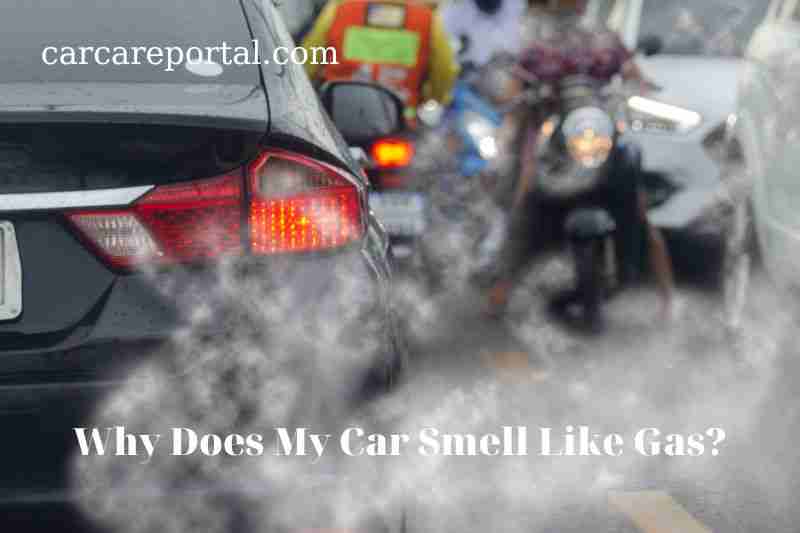
4. Fumes from Exhaust
Exhaust fumes are another component of your vehicle that comprises a gas. These gases are the consequence of your automobile using gas to accelerate, and they are meant to be pushed out the exhaust pipe and away from your car.
You will detect a gas smell in your automobile if you have an exhaust leak before your catalytic converter. The catalytic converter cleanses the exhaust and removes the odor, so if you smell anything, it must have been before that.
Solution and Troubleshooting
At the very least, you know where to begin your search. Troubleshooting this issue is a bit more difficult for a do-it-yourselfer. If you know what your automobile sounds like, you’ll hear a more substantial exhaust noise when there’s an exhaust leak. Revving your engine will allow you to hear the difference more clearly.
While driving, a leaking exhaust will create a tapping noise. The ticking sounds become louder as the leak gets closer to the engine.
Putting a cloth over the tailpipe is another technique to tackle this issue. Hold the towel so that it covers the tailpipe exit. Check whether the towel’s pressure increases while the vehicle idles. If not, you’ve got a leak someplace.
This is another issue that cannot be resolved on your own. A leaking tailpipe would need to be repaired, but at least you know why your vehicle smells like gas!
5. Gas Cap Missing, Loose, or Faulty
Like a missing or loose oil cap, your gas cap might generate a gas smell. The main difference is that your automobile will have no gas smell. You’ll only smell gas if standing outside your vehicle or idling with your windows down.
Solution and Troubleshooting
It would help if you first verified whether your gas cap is even in place. You could have forgotten to put it back on after filling up (or the gas station attendant if you don’t pump your gas in your state).
If there is a cap, spin it clockwise to ensure it is tight. Take it off and inspect it to see if it is already correctly tightened.
If the O-ring is flat, fractured, missing, or cracked, it’s time to replace the gas cap.
Your check engine light may illuminate if your gas cap isn’t properly fastened.
6. Gas Spill Outside
You may have spilled gas on the outside of your vehicle. This does not imply a gas leak somewhere, just that gas was recently splattered on your car.
Solution and Troubleshooting
Try thinking back if you’ve exhausted all other possibilities and still can’t locate a perpetrator. Have you lately filled up your automobile with gas? If so, throw down the windows and take a short drive.
If the odor continues, it was not caused by a gas leak.
You must respond quickly if the spill happens in your trunk or car.
Use old towels to absorb as much gas as possible. Rub a combination of equal parts baking soda, hot water, and white vinegar into the spilled area. This will assist in eliminating the stink.
After that, get your favorite odor-removing spray and spritz it.

7. You Own an Old Vehicle
Because of the technology utilized in the carburetor and float bowl, cars constructed before the mid-1980s may smell like gas when they started and shut down. Furthermore, older vehicles often lack a powerful evaporative-emissions system.
In this instance, neither you nor a technician can solve the issue—nothing to worry about as long as the mild gas smell goes for a few minutes.
8. Inadequate Fuel Pressure
The gasoline in your car’s system is under continual pressure. This allows it to reach where it needs to go while keeping your automobile running smoothly.
If you have low fuel pressure, you’ll smell the effect of your automobile burning too much petrol. Because your pressure regulator isn’t operating correctly, the gas mixture in your automobile will be either too thin or too rich.
Solution and Troubleshooting
Another clue is if you have less power when you step on the gas pedal.
Another clue is if you fill up more often and your fuel economy decreases. In any case, this is an issue that your local technician can remedy.
9. A Leak of Gas
You will undoubtedly detect a gasoline smell in your automobile if you have a gas leak. As previously said, your automobile pumps gas from one end to the other. A gas leak might occur at any point throughout this procedure.
Solution and Troubleshooting
The first sign of a gas leak is that your fuel gauge drops quicker. If your gasoline level drops overnight, it’s a dead giveaway that you have a fuel leak.
You may also let your vehicle idle for a few moments to check if you detect a rainbow puddle beneath it. If there is a fuel leak, checking your automobile after sitting overnight should result in a pool beneath the car.
Your injector, fuel tank, fuel line, or injection line might leak.
The scent of the mixture might help you determine if it’s a gasoline leak or a gas leak. A gas leak will have a more pungent odor than an oil spill. Take your automobile to the repair and inform them of the gas leak.
10. Defective Charcoal Canister
The final possibility is a defective charcoal canister. This is another component of your vehicle’s evaporative emissions control system.
This canister is loaded with charcoal and stores gasoline vapors before sending them to the engine to be burnt.
Solution and Troubleshooting
A damaged canister allows gasoline vapors to escape, and you will most likely be able to smell it from inside your automobile. If your check engine light is on, it might be due to a defective charcoal canister.
It might be due to your charcoal canister if you notice a pinging sound, decreased performance, or more significant emissions than average.
The replacement is complex, and you should take your vehicle to a repair.
You now know what to check for if you smell gas in your automobile. It’s a potentially hazardous scenario, so don’t put it off any longer. Try the suggestions above to see if you can identify the issue.
Take your automobile to a local repair if the situation is too serious.
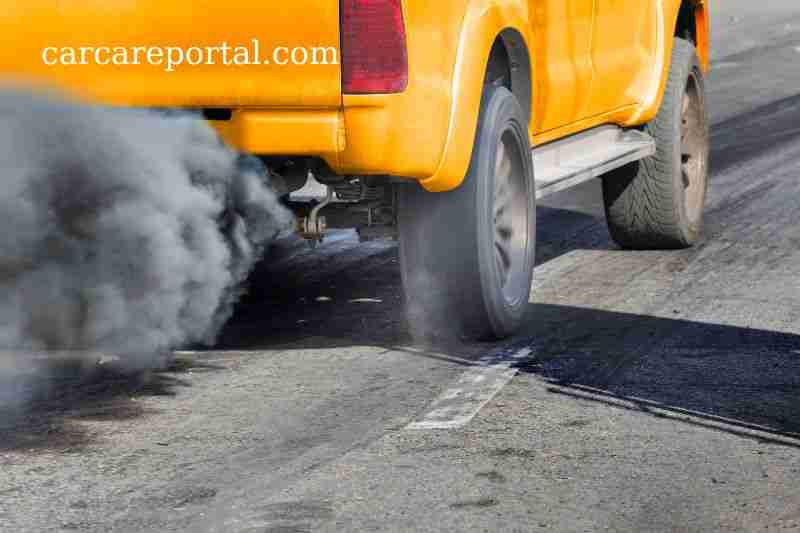
What Should You Do If You Smell Gas in Your Vehicle?
1. Inside the Car
There is a significant difference between smelling gas near your automobile and gas within your car. While both are incredibly dangerous, smelling gas inside your automobile may become lethal.
A gasoline smell inside your automobile is persistent when the heat is turned on since it draws in whatever scents are present in the engine compartment. So, if you notice a gasoline odor inside your vehicle, switch off the heat and air conditioning and investigate and remedy the issue as soon as possible.
2. Outside the Car
Meanwhile, if the scent is just on the exterior of your car, you must find the source of the smell as quickly as possible. Begin by checking the gasoline cap, which is pretty simple and fast.
If that isn’t the case, check if you can’t trace out the source of the stench by just following it. This generally leads you directly to the issue. If not, you should thoroughly inspect the whole fuel system.
This includes inspecting the gasoline tank and any fuel lines to verify no leaks. If there are no leaks in the fuel system, you may have a defective charcoal canister or a rich engine.
A rich engine will emit a fuel odor through the exhaust, but a malfunctioning charcoal canister will emit the odor from the engine compartment. If you cannot resolve the issue on your own, you should seek the assistance of a professional.
Read also:
How To Get Gas Smell Out Of Your Car
FAQs
1. What should I do if my automobile smells like gasoline?
Extra gas on your hands or clothing should dissipate within a few minutes. If you suspect a leak in your gasoline tank or fuel line, take your vehicle to a repair straight away. Untreated, a fractured O-ring may be harmful, but gasoline leaks can cause a fire if gas comes into contact with the engine.
Though it may not be helpful in cases like these, proper automobile insurance may help you cover damage from accidents and medical costs and other expenses.
2. When I start the car, it smells like gas but goes away quickly?
If you only smell gas when you start your automobile, you most likely have a gas leak someplace in or near your vehicle. This might be caused by the engine, the fuel line, or the exhaust system, where gas emissions evaporate.
3. Is it safe to continue driving if I smell gasoline?
No, it isn’t in most circumstances. Some of the lesser issues will not result in your automobile exploding or catching fire, but you won’t know how severe the problem is until you troubleshoot it.
Simply inhaling gas fumes may make you sick and, in difficult situations, kill you. It’s usually advisable to check for a leak as soon as possible and get the automobile repaired as soon as possible.
Here are the top ten reasons your automobile smells like gasoline without further ado.
Conclusion
Due to various factors, your vehicle smells like a gas while the AC is turned on. Simple repairs include a dirty air conditioning system, a loose gas cap, or a damaged spark plug.
Other concerns may be more challenging to reach, although this does not always need a costly repair.
Remember that a gasoline leak may cause a fire and should be handled with utmost care. If you feel queasy, have a headache, or suffer strange symptoms, you should get out of your automobile as quickly as possible and get medical attention.
Read more related post:


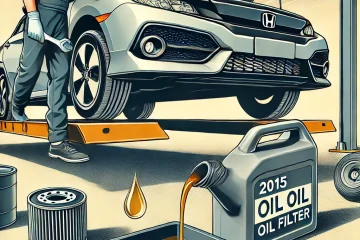
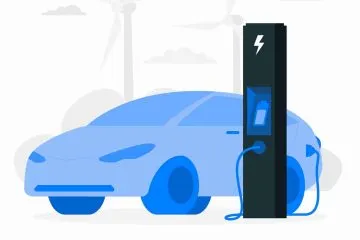


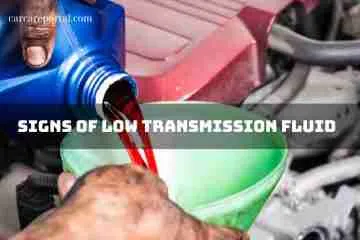
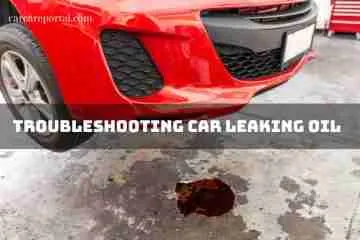
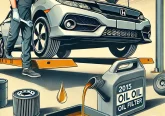

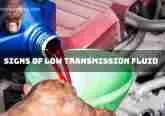

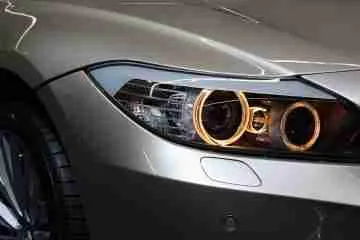
No Comment